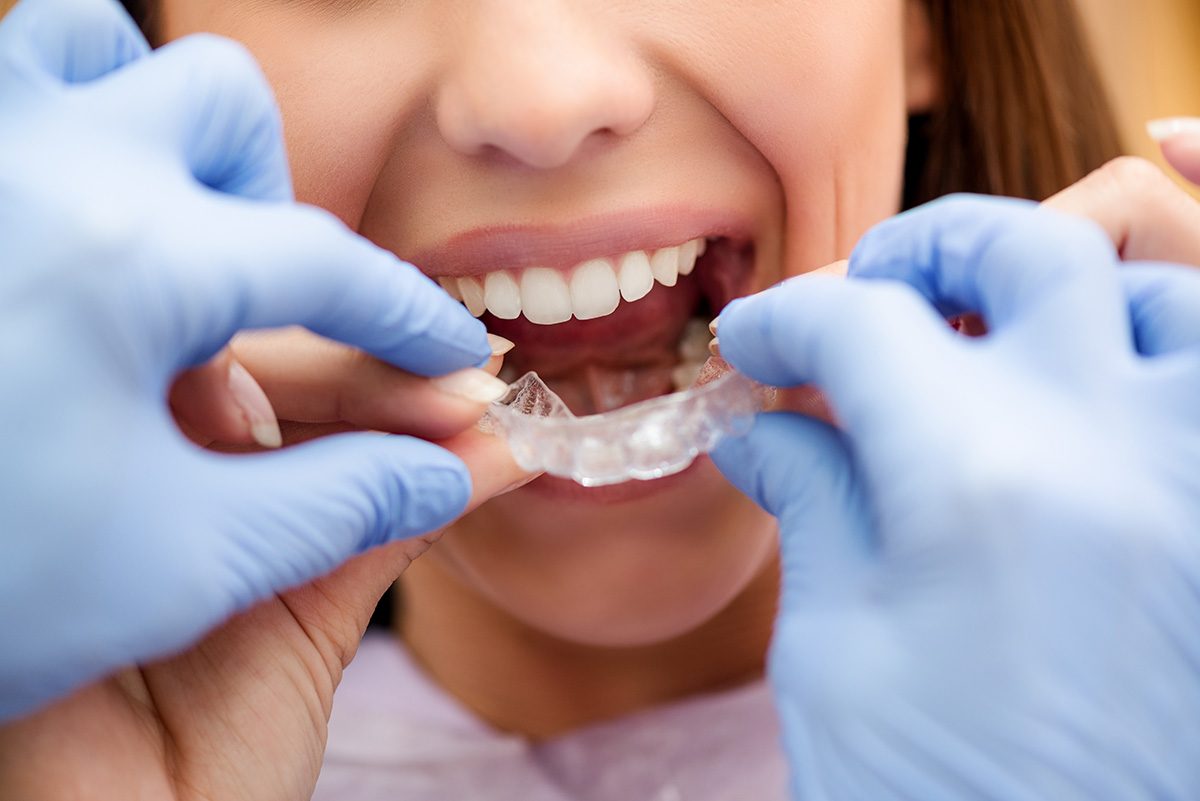The Ultimate Guide To Johnson Orthodontics
The Ultimate Guide To Johnson Orthodontics
Blog Article
Things about Johnson Orthodontics
Table of ContentsOur Johnson Orthodontics IdeasUnknown Facts About Johnson OrthodonticsThe Of Johnson OrthodonticsJohnson Orthodontics for DummiesThe 10-Second Trick For Johnson OrthodonticsFacts About Johnson Orthodontics RevealedRumored Buzz on Johnson Orthodontics
An orthodontist is a dental professional trained to detect, avoid, and deal with teeth and jaw irregularities. Orthodontists work with individuals of all ages, from kids to adults., but not all dentists are orthodontists. They concentrate on two areas: Exactly how to correctly and securely move teeth How to effectively assist development in the teeth, jaw, and faceOnce an orthodontist has finished training, they have the option to come to be board certified.
The Buzz on Johnson Orthodontics
Misalignment, or malocclusion, is the most usual factor individuals see an orthodontist. It is genetic and is the result of dimension differences in between the top and reduced jaw or in between the jaw and teeth. Malocclusion leads to tooth overcrowding, an irregular jaw, or uneven bite patterns. Malocclusion is typically treated with: Your orthodontist attaches steel, ceramic, or plastic square bonds to your teeth.
If you have just small malocclusion, you may be able to use clear dental braces, called aligners, as opposed to typical dental braces. Some people require a headwear to aid relocate teeth into line with pressure from outside the mouth. After braces or aligners, you'll need to put on a retainer. A retainer is a personalized tool that maintains your teeth in position.

They're most commonly used on youngsters. They can produce extra space in the mouth without having to draw teeth. If you have a major underbite or overbite, you may need orthognathic surgical procedure (also called orthodontic surgery) to extend or reduce your jaw. Orthodontists make use of cables, surgical screws, or plates to sustain your jaw bone.
Johnson Orthodontics Fundamentals Explained
Throughout your very first orthodontic examination, you'll likely have: An oral examPhotos taken of your face and smileDental X-raysPanoramic (360 degree) X-rays of your face and headImpressions to develop molds of your teethThese examinations will certainly help your orthodontist understand just how to proceed with your therapy. An orthodontist is a dental practitioner that's had training to treat your teeth and jaw.
Orthodontists may perform surgery, exams,X-rays,and more to assist you achieve a much more comfy, much healthier smile. An orthodontist is focused on your bite, so something like a damaged tooth would certainly be dealt with by a dental professional. Orthodontists are dental professionals but not all dental experts are orthodontists. Orthodontists are concentrated on your bite, or the way your teeth meshed, and the straightness of your teeth.
Ever wondered how celebs constantly appear to have perfectly aligned teeth? Orthodontists are dental experts that concentrate on remedying irregularities in the teeth and jaws.
Facts About Johnson Orthodontics Uncovered

These removable trays are tailor-made to gradually change the teeth's setting. In cases of narrow jaws, palatal expanders can be utilized to produce area for correct tooth positioning.
Some Known Factual Statements About Johnson Orthodontics
While try here attaining a gorgeous smile is a natural perk of orthodontic therapy, the benefits extend much past visual appeals. Appropriately lined up teeth and a well balanced bite contribute to enhanced oral health and wellness in several means: Straight teeth are easier to clean, which helps avoid cavities and gum tissue disease. A proper bite permits efficient chewing, which helps in digestion and general gut wellness.
What is the difference between a dental expert and an orthodontist? To respond to an inquiry that is usually asked, both dental practitioners and orthodontists help patients get much better dental health and wellness, albeit in various ways. It helps to bear in mind that dental care is a rather wide scientific research with various clinical specializations. All dental professionals, consisting of orthodontists, deal with the teeth, periodontals, jaw and nerves.
You can think of both physicians who deal with gum tissue and teeth troubles. The main difference is that becoming an orthodontist requires a particular specialty in treating the imbalance of the teeth and jaw.
Get This Report on Johnson Orthodontics
An orthodontist is a dental professional that has actually gone through training to specialize in the medical diagnosis, prevention and treatment of irregularities in the jaw and teeth. They can likewise recognize possible problems in teeth placement that might develop when problems are left neglected.
This includes all the needed education and learning to come to be a basic dental expert. According to the American Student Dental Organization (ASDA), it implies you will need to have either a Physician of Medicine in Dentistry (DMD) or a Medical Professional of Oral Surgery (DDS). Simply put, orthodontists need to finish oral college and afterwards obtain an orthodontics specialized education and learning.
Johnson Orthodontics for Beginners

When you have a healthy bite, you can speak, eat and eat properly, therefore boosting your high quality of life. Besides the orthodontist, we frequently see aides functioning with these oral specialists in their clinics. What is an orthodontist assistant called? They're appropriately recognized as orthodontic assistants. They are specialized aides, and are educated to manage oral equipment and offer preventative dental health care.
Report this page